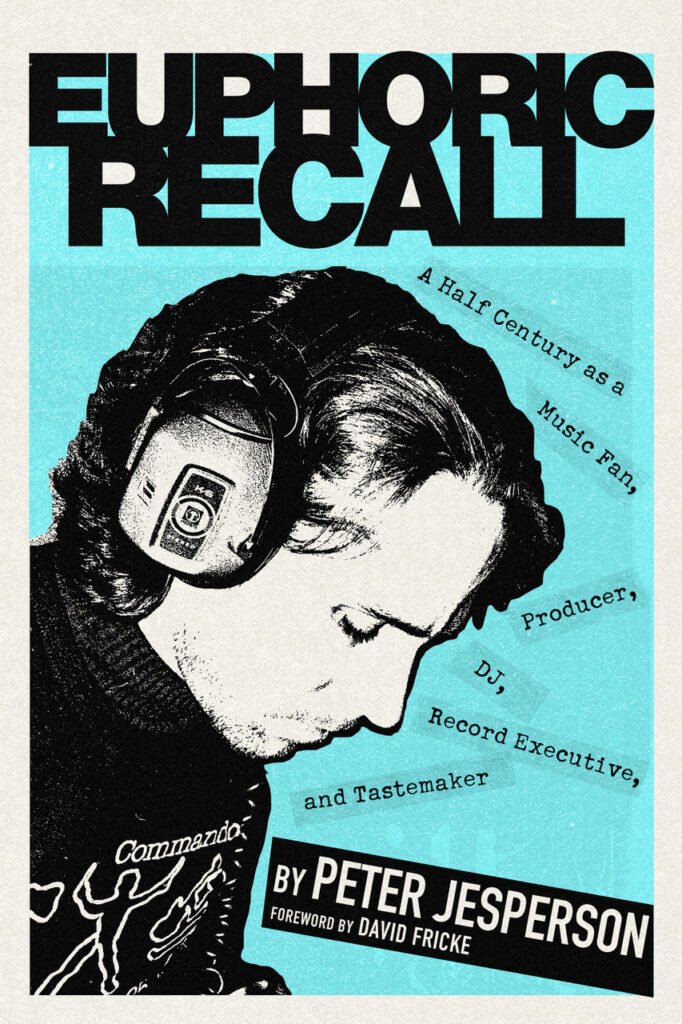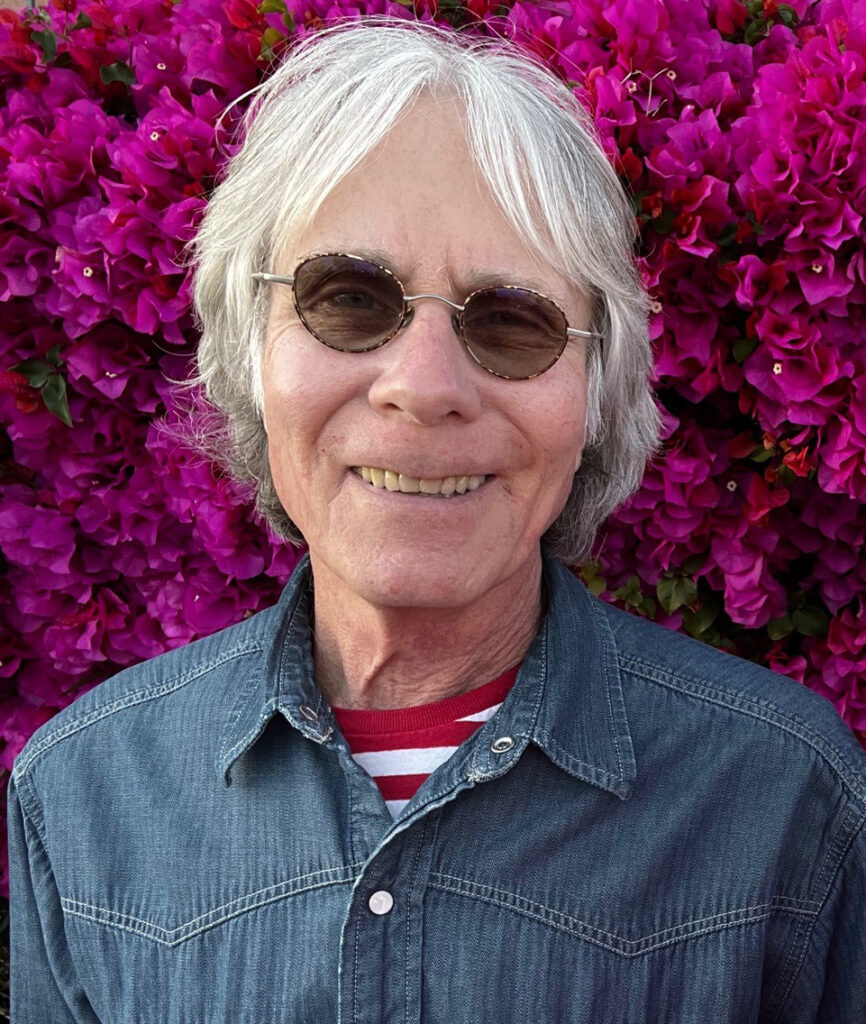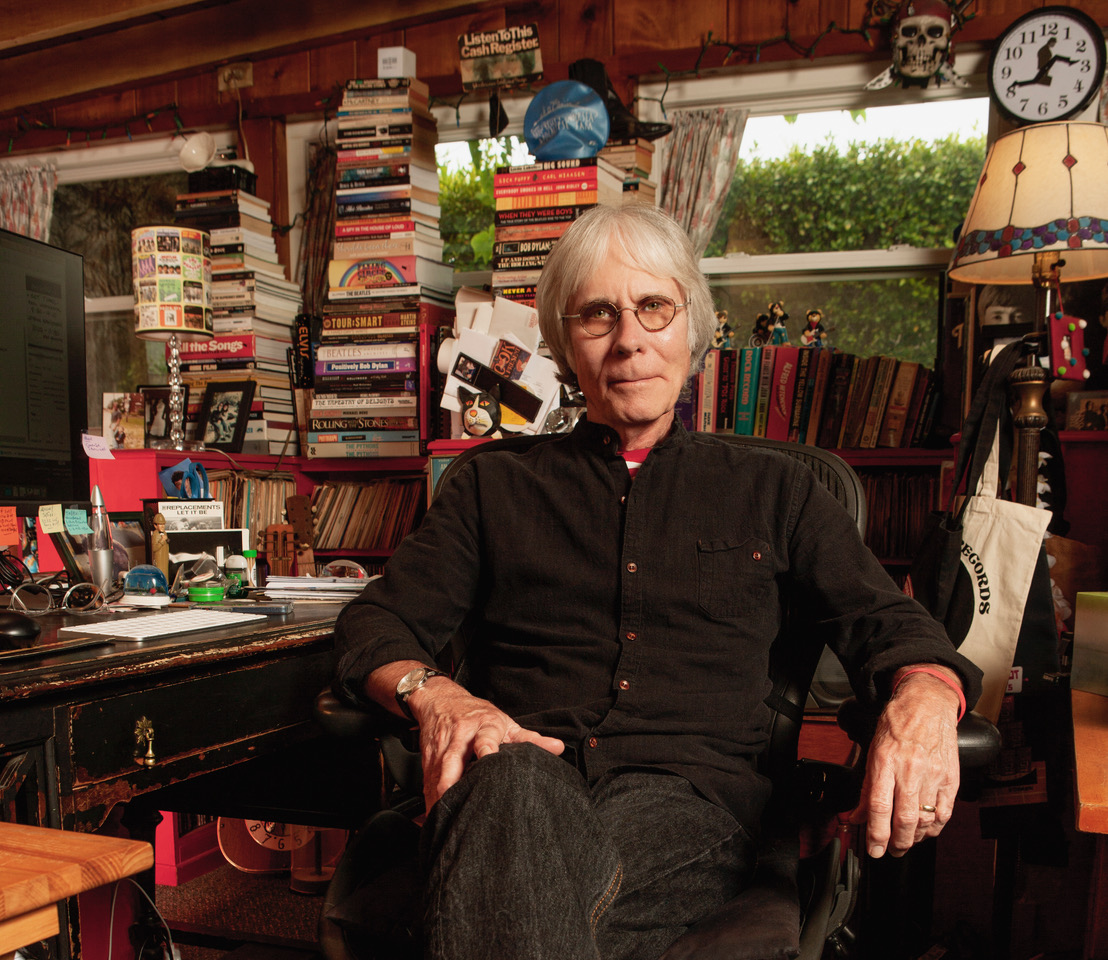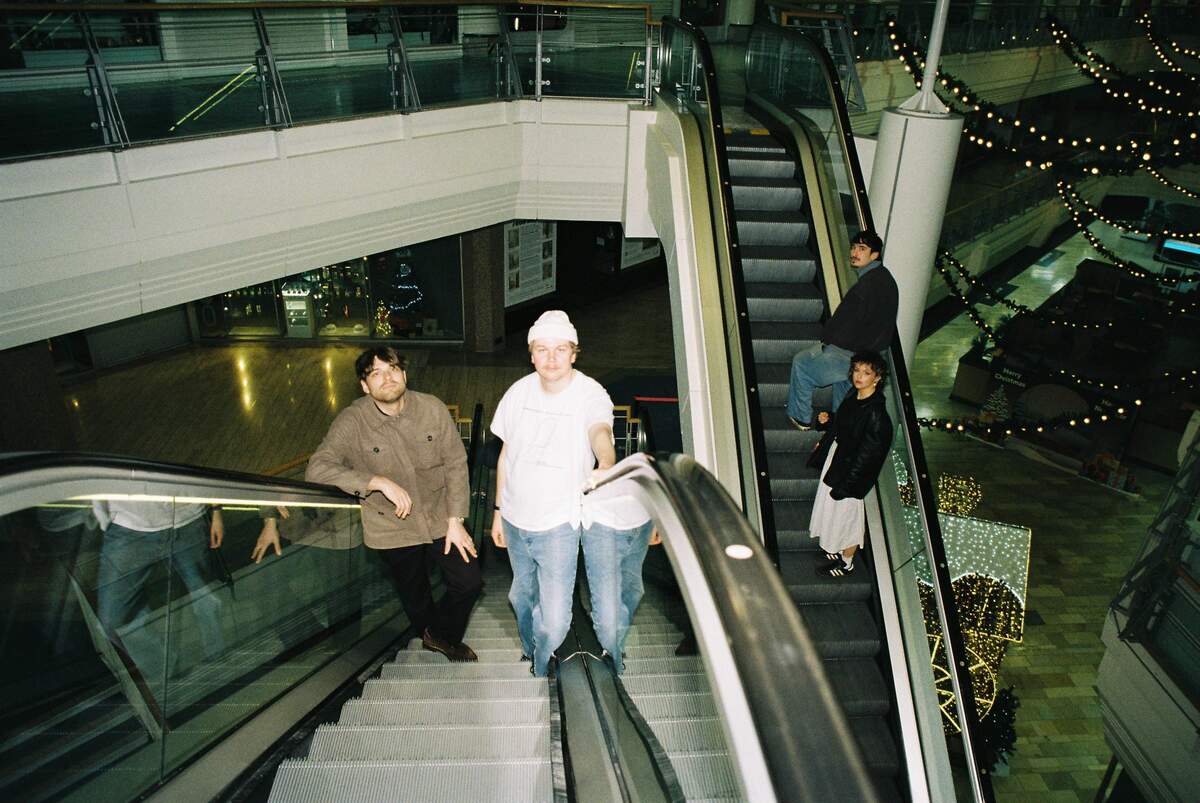Euphoric Recall | Peter Jesperson’s Memoir | Interview
Peter Jesperson’s Euphoric Recall lays bare the gritty truth of the music biz, showcasing his fervent advocacy for artistic integrity while serving up a hopeful message for the countless artists grappling with the harsh realities of the industry.
Peter’s journey into the Minneapolis music scene during the ’70s and ’80s began when he landed a dream job at Oar Folkjokeopus, a record store that ignited his passion for the burgeoning alternative rock movement. As one of the co-founders of Twin/Tone Records, he played a crucial role in launching the careers of iconic bands like The Replacements, Soul Asylum, and The Jayhawks, showcasing his keen ear for talent. Known for his legendary management of The Replacements, Peter navigated the band’s often chaotic behavior with a blend of trust and understanding, earning him a reputation as both a friend and mentor to the artists he worked with. In Euphoric Recall, Peter pulls back the curtain on his wild ride through the hellfire of substance abuse, laying bare the chaotic, intoxicating underbelly of the rock ‘n’ roll lifestyle. It’s a gritty, unfiltered dive into the trenches, where the glitter and glam often mask a desperate fight for survival. Amidst the wreckage, there’s a flicker of hope. Peter’s experience with R.E.M. offered a striking contrast to his time managing The Replacements, revealing a more harmonious approach to touring that underscored the power of teamwork and camaraderie among band members. At New West Records, Peter navigated the tumultuous waters of the ’90s music industry, fiercely prioritizing artistic integrity over the soulless demands of commercial viability. He championed veteran artists who had been cast aside by major labels, reminding us all that real talent often gets overlooked in the relentless chase for profit. A true advocate for treating music as an art form rather than just another product to sell, he urges aspiring artists and managers to approach their work with honesty, fairness, and an authentic passion for the craft.

“Music is art and needs to be treated that way, not as “product.”
Your journey into the Minneapolis music scene during the ’70s and ’80s was pivotal in shaping the landscape of alternative rock. What drew you to that specific time and place, and what was it about the music scene there that captured your attention?
Peter Jesperson: It all began when I was offered a job at Oar Folkjokeopus, a record store in south Minneapolis, Minnesota. I had been a music fanatic since I was very young and always knew I was going to work in the field in some capacity. To actually get a job in a record store was a dream come true for me. It was the spring of 1973, not long before the punk and new wave indie labels started cropping up all around the world, so the timing was especially fortuitous.
The music scene in Minneapolis and the adjacent St. Paul was also exploding at that time, with many of the young bands of all different styles writing their own material. It was an incredibly exciting time. The first local band to impress me as much as the records I’d been listening to was called Thumbs Up. They had two frontmen: a pure pop singer, Gary Rue; and Curt Almsted, who was equal parts Wilson Pickett and John Lennon. His scream could rattle the windows. When we started our record label in 1977 (Twin/Tone Records), they were the first band I ever signed to a record deal. And by the time we signed them, Curt had a new guitarist/sidekick in the band – Bob Dunlap – later to be nicknamed “Slim” when he joined the Replacements.
As one of the co-founders of Twin/Tone Records, you played a significant role in launching the careers of iconic bands like The Replacements, Soul Asylum, and The Jayhawks. Can you share some insights into the early days of Twin/Tone Records and the process of discovering and nurturing emerging talent?
The Replacements’ lead singer, Paul Westerberg, brought me a demo tape and asked if I’d listen. When I did, I instantly fell madly in love with the songs. When I saw the band live, I was convinced they had the potential to become a formidable group, and we signed them to a record deal. I spent a lot of time with all four of them, but Paul and I grew especially close. I have always had a large collection of records, and my apartment was our primary hangout. I introduced them to a lot of things they hadn’t heard before, like Terry Reid, Big Star, NRBQ, and Captain Beefheart, among others. I think it’s safe to say I was both their friend and teacher. As our relationship grew, a strong trust developed between us. I became their manager and co-producer.
Soul Asylum had previously been called Loud Fast Rules (LFR), and we were all friends. The Replacements often brought LFR along to out-of-town gigs as an opening act. They’d always been an incredible live band, but after seeing a particularly fabulous show in Madison, Wisconsin, I was so blown away that I offered them a record deal on the spot. They were a mix of punk and hardcore, which especially appealed to Bob Mould (singer-guitarist with Husker Du), so he was hired to produce their first recordings.
The Jayhawks were actually signed by another A&R person at Twin/Tone, by the name of Dave Ayers. He wisely recognized the strength of the band’s alt-country sound and the songwriting talent in the two frontmen: Mark Olson and Gary Louris.
Your management of The Replacements is legendary, characterized by both triumphs and challenges. What were some of the most memorable moments you experienced while managing the band, and how did those experiences shape your approach to artist management?
The Replacements were a fairly “unmanageable” group, but I did my best to keep things in order. And, again, the trust we had built up from the beginning worked in my favor. There were many wild experiences, but here’s one that stands out. The band had an argument with a club owner who wanted to book them on short notice, with no time for them to make flyers and promote the show. I told them I didn’t think they should do that. The club owner got very angry and shouted at them, “Do I have to talk to Peter every time I want to book you?” Paul Westerberg looked at me, mouthing the words, “OK if I say yes?” I nodded, and that was basically how I became the band’s manager. Despite the band’s often difficult behavior, I learned that it was best to let them be themselves, and afterwards, I’d do whatever I could to diffuse the situation. There were also many times when the band would get drunk and do a bad show, and I had to calm down the club booker or owner, or even accept a lower payment than we had agreed on. And whenever one of those people was unpleasant or treated us badly, we just avoided them in the future. It was a live-and-learn process.
After your tenure with The Replacements, you ventured into tour managing R.E.M., another seminal band in alternative rock history. How did your experiences with R.E.M. compare to your time with The Replacements, and what were some of the key lessons you learned from working with both bands?
In working with R.E.M., I learned how civilized touring could be. They were not as wild as The Replacements and were more willing to share the driving, assist with directions from one city to another, and just be helpful in general. With R.E.M., I simply had to get them from one place to another on time. With The Replacements, there was a lot more of what I would call “babysitting.” While I enjoyed the relative calm of riding with the R.E.M. boys, I missed the crazy times in The Replacements’ van.
Your memoir, Euphoric Recall, delves into your personal struggles with substance abuse amidst your professional successes in the music industry. What prompted you to share your story, and what message do you hope readers will take away from your experiences?
I promised myself I was going to write honestly in my memoir, and substance abuse is a big part of the rock ‘n’ roll business. I felt I had to address that. It was one of the hardest things to write about, but when I had done it, it made me feel better. It was cleansing somehow. Beating addiction can be done, and life goes on. I hope it inspires readers who have a drug or alcohol problem to do it themselves.
Throughout your career, you’ve worn many hats in the music industry, from managing record stores to working with labels and artists. How has the industry evolved from your perspective, and what do you see as the most significant changes and challenges facing artists and professionals today?
We’re at a time in the record industry where the labels that have sturdy resources (the so-called Major Labels) aren’t signing enough complete unknown bands anymore. They’re mostly signing artists based on sales data and the size of the fanbase they already have. They are not signing an artist because they hear a song that they like, and I find that very sad. As Peter Cooper, music writer for the Nashville Tennessean, recently wrote, “We’re in the passion business,” and when artists are signed strictly on the basis of profitability, I believe we’ve lost one of the most important aspects of music – the way it makes us feel.
Your book has garnered praise for its behind-the-scenes glimpses into the music industry and your unwavering passion for music. Can you share a particular anecdote or story from the book that you believe encapsulates your lifelong dedication to music and the artists you’ve championed?
Yes, I can. Back in my record store days, when the major label representatives would come in and ask to put up posters of popular mainstream bands we didn’t like, we would politely say “No.” This often made the label reps mad. But we stood our ground and eventually became known as diehard music nuts who primarily championed the groups we loved. And that gave us a kind of credibility and respect within the music community.
In your opinion, what were some of the defining characteristics of the Minnesota music scene during the ’80s and ’90s, and how did it contribute to the broader cultural landscape of alternative and indie rock?
One of the things I’m most proud of about the Minnesota scene is that people were open to all different kinds of music. It wasn’t just the flavor of the day, “Punk” or “New Wave.” All styles were welcome. And what’s more, I feel like our scene helped make it acceptable for bands to simply ‘be themselves.’ They didn’t have to put on costumes or worry about their image. They just got out there and played and made the best records they could.
Your work with New West Records exposed you to the shifting dynamics of the music industry in the 1990s. How did you navigate these changes, and what strategies did you employ to continue supporting artists in an ever-evolving industry landscape?
My experience at New West began right as digital music file-sharing became an issue. At New West, we worked primarily with veteran artists who appealed to an older audience and who weren’t involved in digital music, which made things much easier for us. Many of the artists we worked with had been in the Major Label system but were no longer selling enough to stay there. So, New West benefitted by having access to artists like Kris Kristofferson, Steve Earle, John Hiatt, and Dwight Yoakam, who weren’t selling hundreds of thousands of records but were selling enough to make a decent living. We felt privileged to work with artists of that caliber; we worked hard for them and treated them with respect. Yes, the dynamics in the music industry are constantly mutating and changing, but it still comes down to finding the most talented artists you can and doing everything you can to get their music into as many ears as is humanly possible.
With your extensive experience in the music industry, what advice would you offer to aspiring artists, managers, and professionals looking to make their mark in today’s music scene?
My advice would be directed to the kind of label where the business serves the art and not the other way around. To me, music is art and needs to be treated that way, not as “product.” I would tell aspiring people to be honest and fair and to work with their hearts.

Thank you for taking your time. The last word is yours.
As I always say to young bands that ask me for advice, “You must understand that 90% of the musicians in the world cannot make a living playing music.” If you can accept that but still want to work in this crazy business, then you’re the kind of person we need!
Thank you for your interest in my perspective and my book, Klemen!
Klemen Breznikar
Peter Jesperson Instagram




